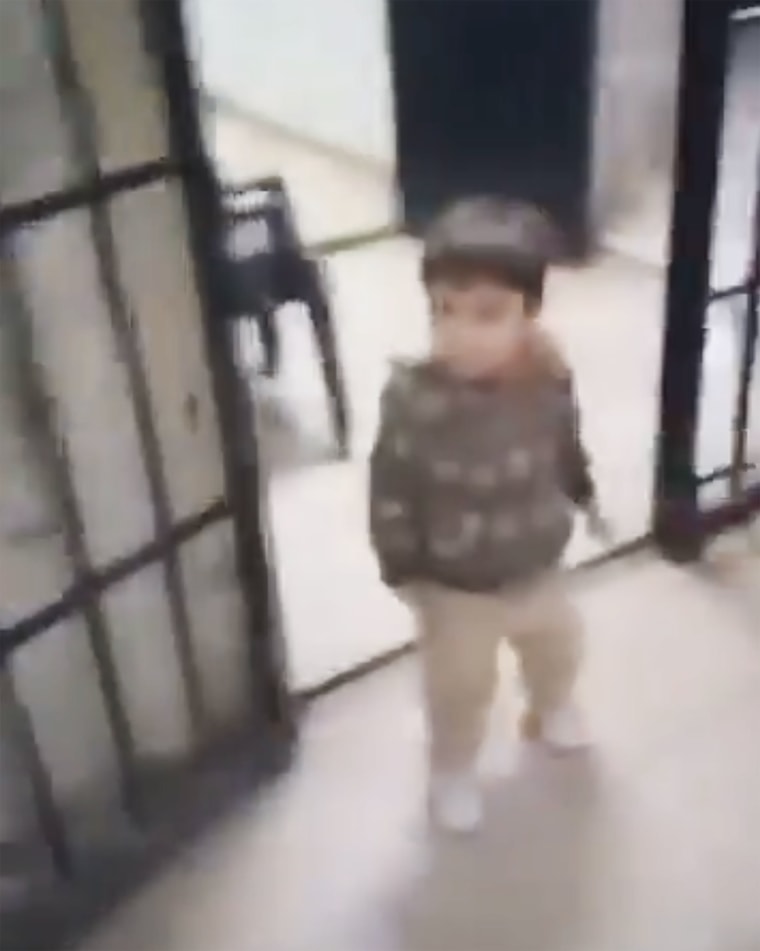
While families and rescuers looked for those who were still missing, Syrians celebrated the ouster of President Bashar al-Assad on Monday as thousands of captives were released from his infamous prisons.
Following the overthrow of Assad, whose ruthless dictatorship saw hundreds of thousands of political prisoners vanish into cells where many faced torture and death, powerful photographs have surfaced depicting individuals, including women and children, being released from prisons around the nation.
The human slaughterhouse was one of the facilities being inspected for evidence of covert subterranean cells while Assad was in Moscow after fleeing the country.
Hours after rebel forces took control of the Syrian capital, men were shown applauding as they were freed by militants who broke the lock on the doors and then entered Saydnaya jail near Damascus, according to one video confirmed by NBC News.
In a different video, a young kid was seen tottering out of a cell while the women around him celebrated. Some of the women were perplexed after hearing that they had been released and asked to see their identification cards and possessions.
Rescue crews hurried to investigate Saydnaya after hearing terrifying tales of captives being kept in “hidden underground cells,” while relatives hurried to the facility in the hopes of locating their loved ones.
Citing testimonies from survivors, the White Helmetsrescue group announced that it has sent out five specialist emergency teams to look for jail cells thought to be concealed underground at the infamous prison.
In a statement posted on X, the White Helmets stated that the teams were “well trained and equipped to manage such complex operations.” “Those teams are composed of search and rescue units, wall-breaching specialists, iron door-opening crews, trained dog units, and medical responders,” the group claimed.
There was “no evidence confirming the presence of detainees in the basements or cellars of the prison, with search efforts still underway,” according to the group as of early Monday.
Human rights organizations have long warned that Assad oversaw a system of torture, abuse, and killings to keep control of the country, and the jails are notorious for their awful circumstances.
‘They said he was killed’
Abdulaziz Almashi believed a close relative had passed away for almost ten years. He expressed his surprise to NBC News on Monday after discovering that his second cousin had actually been imprisoned in one of Assad’s jails.
“They said he was killed by ‘terrorists’,” said Almashi, 39, a Syrian refugee from the Syrian city of Manbij who established the Syria Solidarity Campaign in London. “It turned out, he’s alive.”
According to Almashi, when the Syrian revolution started, his second cousin, who is currently in his early 30s, was serving in the military as an obligatory soldier. Not wishing to fight for Assad, he attempted to escape but was apprehended.
In 2012, Almashi’s family was devastated, depressed, and ashamed when authorities informed them that he had died on the battlefield.
Almashi asked, “Can you imagine how we thought about it?” For example, how could a member of our family lose their life while supporting Assad? His past is not on his side.
They didn’t know he had been behind bars the entire time until Sunday, when his second cousin came out of his prison cell, malnourished, and rushed to see his family.
“It’s unbelievable,” Almashi remarked. “Will he ever get better? That’s the query.
Almashi emphasized that his family’s horrific story is only one of many, and he is anxious to go back to Syria to be with his loved ones.
“Everyone that has come out of prison has stories,” he stated.
In a statement Sunday, Amnesty International said that Assad’s overthrow raises the possibility “that they could finally discover the fate of their missing loved ones, in some cases decades later” after tens of thousands of people were “forcibly disappeared” in Syria.
“Human Slaughterhouse” was a 2017 study by Amnesty International that detailed the harsh conditions in the Saydnaya military prison, which included “killings, torture, enforced disappearance, mass hangings, and extermination of detainees.”
Almashi expressed his amazement that his loved one made it through his terrifying struggle.
Why would you inform his relatives that he has passed away? “I said.” “Because you know that he will end up dead in a prison anyway.”
Note: Every piece of content is rigorously reviewed by our team of experienced writers and editors to ensure its accuracy. Our writers use credible sources and adhere to strict fact-checking protocols to verify all claims and data before publication. If an error is identified, we promptly correct it and strive for transparency in all updates, feel free to reach out to us via email. We appreciate your trust and support!
